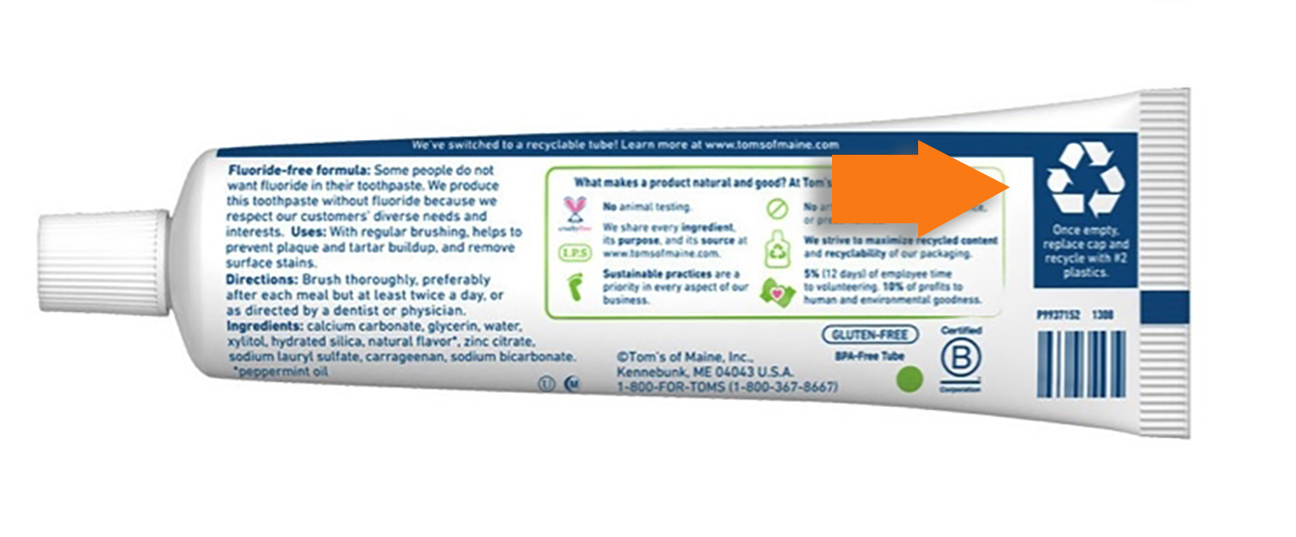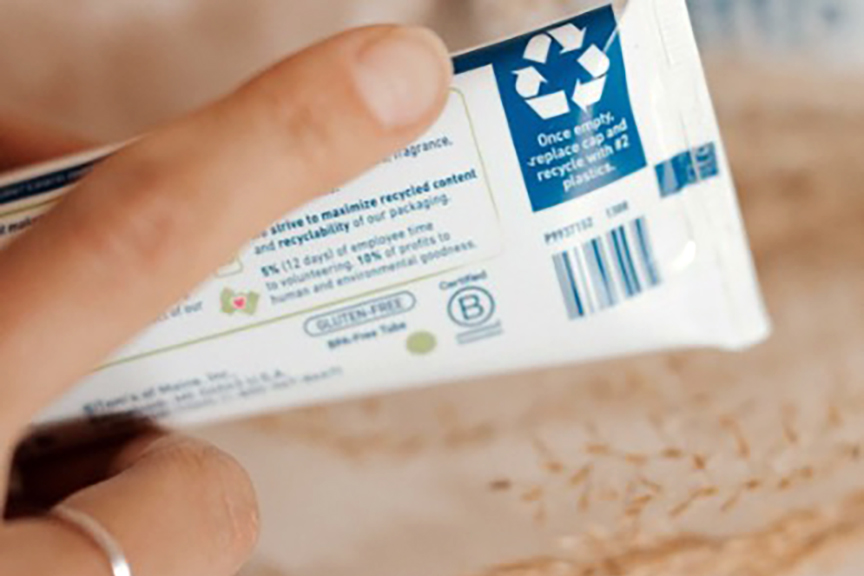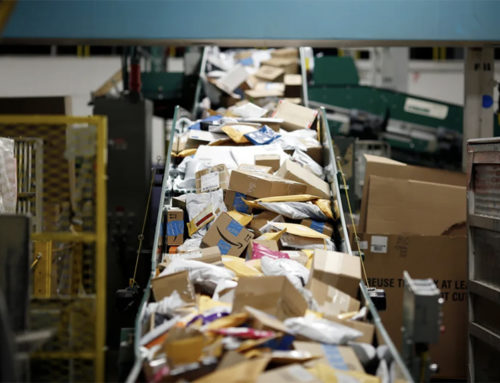Consumer watchdog group Truth in Advertising has raised concerns over the marketing claims of 100% HDPE (High-Density Polyethylene) toothpaste tubes, labeling them as recyclable. The group alleges that these claims breach the U.S. Federal Trade Commission’s (FTC) Green Guides, designed to regulate environmental marketing claims, and has taken action against Colgate-Palmolive, known for its brands Tom’s of Maine and Colgate.
Truth in Advertising lodged complaints with the FTC, as well as regulatory authorities in California and Connecticut, resulting in an investigation by the Connecticut attorney general.
The core of the issue lies in the allegation that, while these HDPE toothpaste tubes are technically made of recyclable plastic, they often fail to get recycled in facilities across the United States, instead ending up in landfills. This failure is attributed to various factors, including contamination issues, tube size and shape, and their resemblance to non-recyclable products.
Bonnie Patten, Executive Director of Truth in Advertising, claims that Colgate-Palmolive’s marketing approach amounts to “greenwashing,” taking advantage of environmentally conscious consumers who genuinely believe their purchasing choices contribute to a cleaner environment.
In response to these allegations, Colgate-Palmolive contests the claims, emphasizing that the tubes also advise consumers to check with local recycling facilities. These HDPE toothpaste tubes were introduced in 2019, with the company asserting its pride in pioneering a recyclable toothpaste tube and sharing the technology with others to drive industry-wide transformation.

Green Guides and the Quest for Clarity
The FTC’s Green Guides, updated in 2023, play a significant role in assessing and regulating environmental marketing claims, including those related to recycling and recyclable content.
The Plastics Industry Association, the Association of Plastic Recyclers (APR), and The Recycling Partnership were among the stakeholders who submitted comments during the revision process. They called for more stringent regulations and standardized definitions of key terms to address deceptive claims.
The Plastics Industry Association stressed the need for national standards to promote truth in advertising across various aspects of environmental marketing. They advocated for a technologically and material-neutral approach to the Green Guides, designed to offer consistent guidance.
The Recycling Partnership urged a rigorous, data-driven approach to assess recyclability, factoring in accessibility to collection programs, sorting effectiveness, and the availability of end markets for repurposing materials in the production of new products or packaging.
APR’s emphasis was on narrowing the definition of recycled content to match ISO standards, ensuring that recycled content claims are aligned with consumers’ expectations. They also recommended an increase in enforcement against deceptive claims and maintenance of the 60% consumer access threshold for recyclability claims.
AMP Robotics highlighted the evolution of the recycling industry, influenced by robotics and artificial intelligence. They urged the Green Guides to incorporate the transformative impact of these technologies, as well as extended producer responsibility laws.
The Last Beach Cleanup, Just Zero, Plastic Pollution Coalition, Beyond Plastics, Center for Biological Diversity, and Greenpeace USA collectively called for the Green Guides to be codified into law, alignment with California’s Truth in Labeling law, restrictions on “store drop-off” labels unless recycling performance meets specific standards, and the definition of recycled content to focus on actual physical materials used by consumers.
The controversy surrounding HDPE toothpaste tubes and the Green Guides underscores the need for comprehensive, consistent, and transparent regulations to protect consumers and the environment while advancing sustainable practices in the plastic industry.






